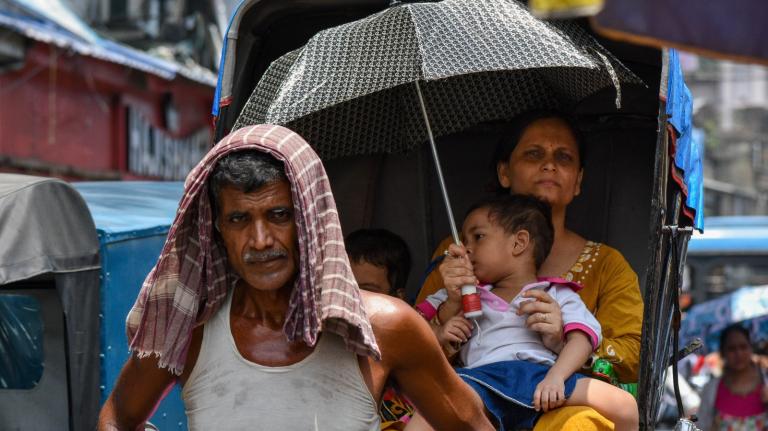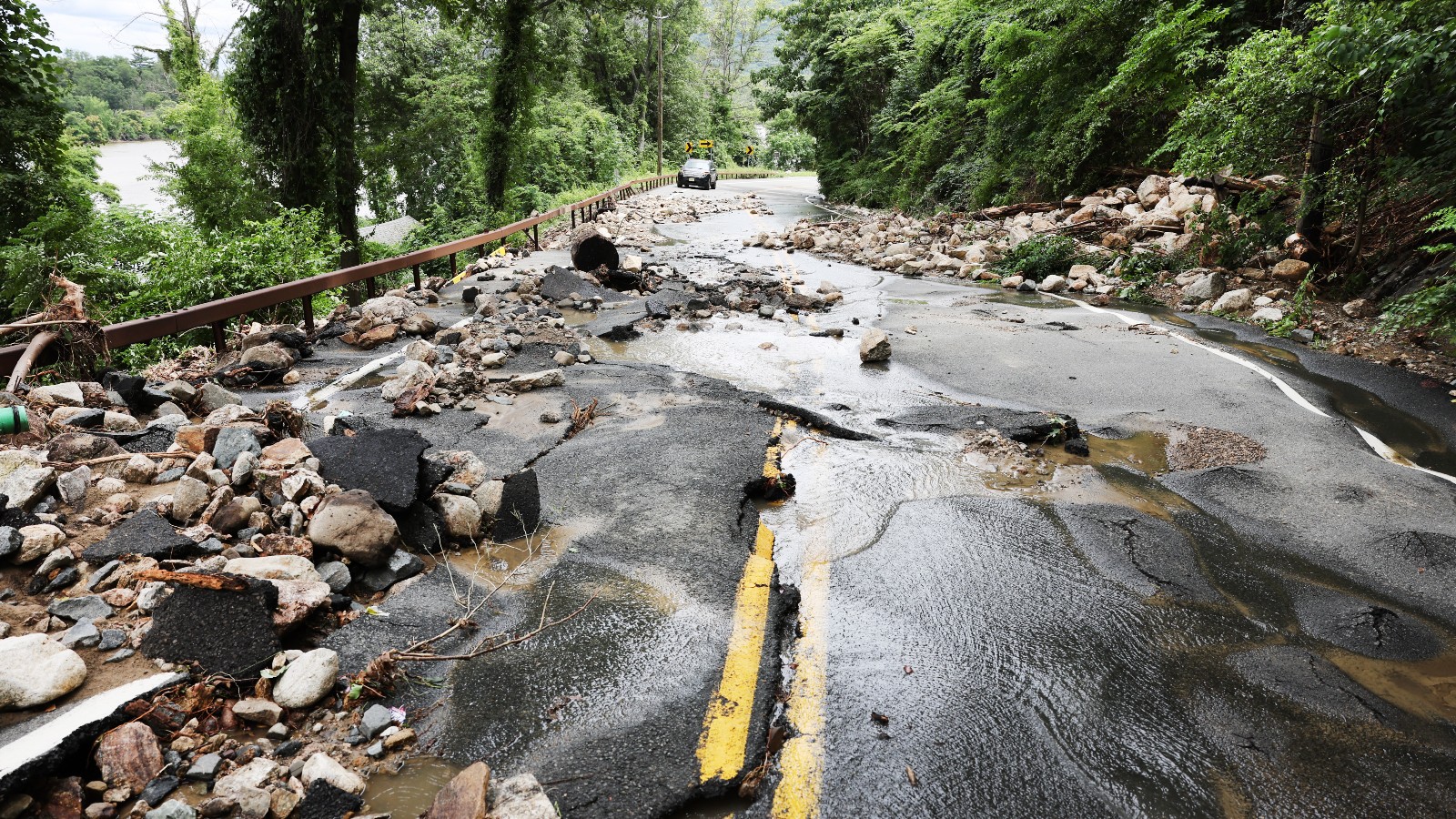This story is part of Record High, a Grist series examining extreme heat and its impact on how — and where — we live.
The world just experienced its hottest week ever recorded, with seven straight days of blistering, historic levels of heat, according to preliminary data released by the World Meteorological Organization, or WMO. The unsettling milestone, set during the first week of July, also follows the hottest June on record.
The news comes amidst a sweep of extreme weather events across the globe, from devastating flooding in the northeastern United States, India, and Japan, to a marine heat wave affecting 40 percent of the world’s oceans. Together, the various events have prompted alarm over the unprecedented climatic changes underway as a result of fossil fuel emissions.
Experts say the extreme heat and severe weather, linked to climate change and the global El Niño weather phenomenon, portend a summer that will continue to be rattled by storms and soaring temperatures.
“We are in uncharted territory,” said Christopher Hewitt, director of climate services at the WMO in a statement released Monday. “We can expect more records to fall as El Niño develops further and these impacts will extend into 2024.”
Over the weekend, severe flooding in New York’s Hudson Valley left hundreds stranded and at least one person dead. In West Point, New York, 7.5 inches of rain fell in just six hours on Sunday. On Monday, parts of Vermont, Connecticut, Rhode Island, and Massachusetts remained under emergency flood warnings as the deluge of rain swept up roads and bridges across the region. Forecasters compared the rainfall to Hurricane Irene, which caused $6.5 billion in damage to homes and other infrastructure along the East Coast and in the Caribbean in 2011.
In India, heavy rain across the northern region of the country killed at least 22 people, officials announced Monday. Flash floods and landslides collapsed buildings and flooded the streets in the states of Punjab, Haryana, Uttar Pradesh, Jammu and Kashmir, Himachal Pradesh, Uttarakhand, and Delhi. In Himachal Pradesh and Uttarakhand, located in the Himalayan region, local authorities asked people to not leave their homes unless absolutely necessary.
Meanwhile, torrential rain across southwest Japan overflowed rivers and triggered landslides. Officials asked tens of thousands of residents in affected areas, including in parts of the Fukuoka and Oita prefectures, to evacuate on Monday. Military troops have been sent in to help with rescue operations. Several factories and train lines in the region have been temporarily closed, and dozens of flights have been canceled.
Worrying changes are also happening to the world’s oceans, further fueling a cycle of extreme weather and rising temperatures. Scientists say both climate change and the current El Niño cycle, which typically brings above-average ocean temperatures, play a role in the global marine heat wave affecting 40 percent of all ocean areas. Sea-surface temperatures reached a record high this past May and June, to about 69.6 degrees Fahrenheit. In Florida and other parts of the U.S. South, a crazy-hot Gulf of Mexico is one of the factors driving brutal heat and humidity this week. A recent study found that the Gulf is warming at twice the rate of the rest of Earth’s oceans.
Hotter seas will impact ocean circulation, marine ecosystems, and global fisheries. United Nations climate researchers note that an abnormally warm North Atlantic is of particular concern, due to its outsize role in fueling hurricanes, tropical cyclones, and heavy rain and drought in West Africa.
The events bring into harsh light the real and ever-growing consequences of delaying a transition away from fossil fuels. “Climate change is out of control,” U.N. Secretary-General Antonio Guterres warned last week in response to the shattered heat records. “If we persist in delaying key measures that are needed, I think we are moving into a catastrophic situation.”



